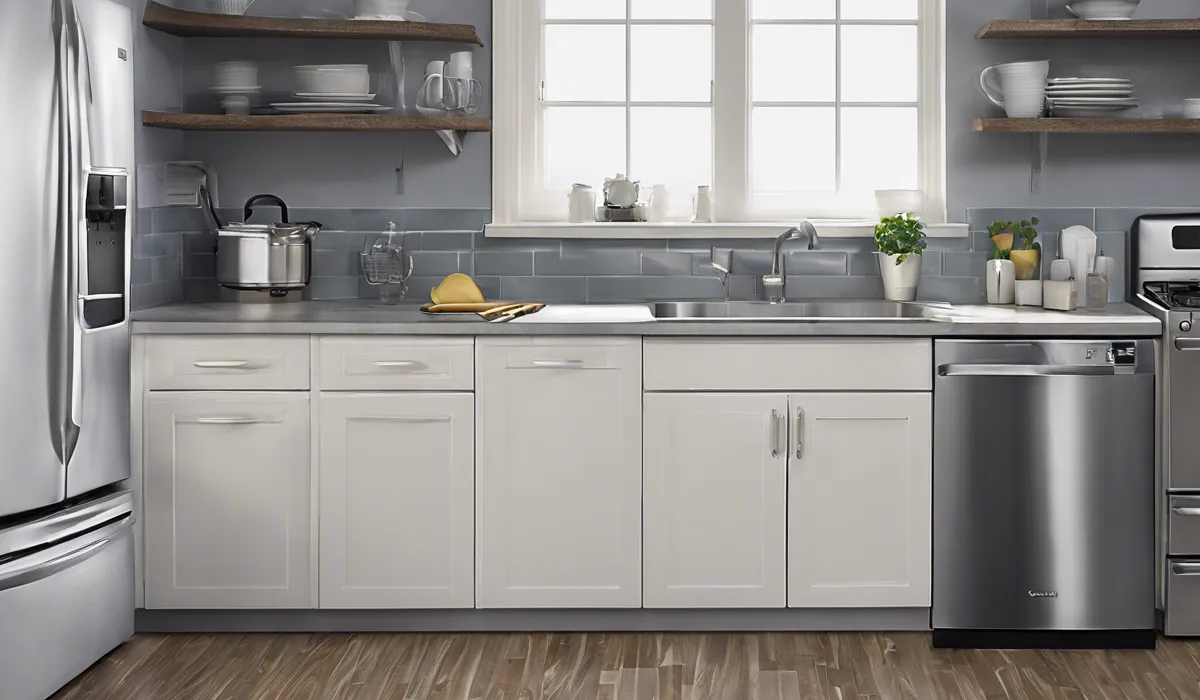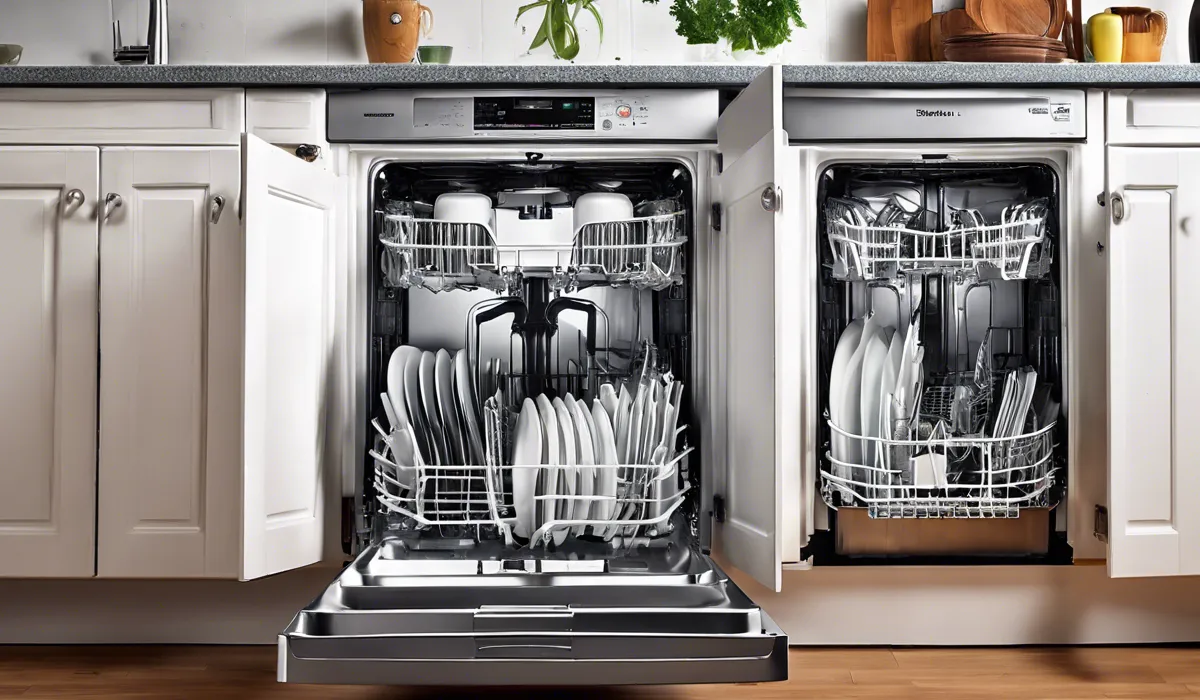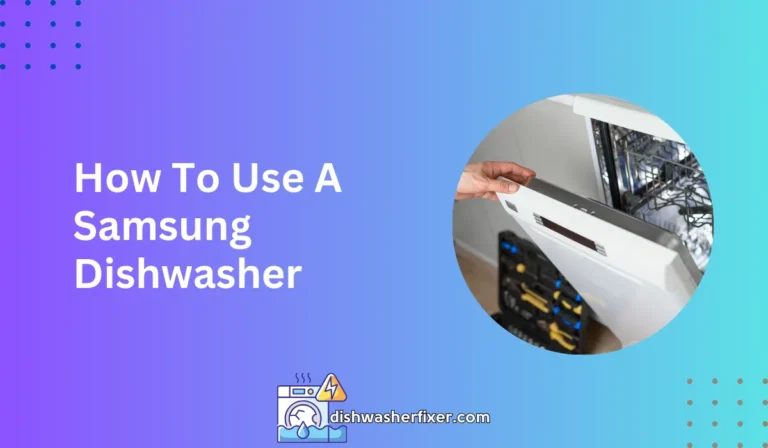How to Tell if Dishwasher Pump Is Bad: 5 Warning Signs
To determine if a dishwasher pump is bad, listen for unusual noises during operation, such as humming or grinding. Check for water not draining properly, indicating a possible pump failure. Inspect for leaks around the pump, and if the dishwasher doesn’t clean dishes effectively, the pump might not be circulating water as needed.
Signs of a Bad Dishwasher Pump

Unusual Noises: Grinding, Humming, or Buzzing Sounds
When your dishwasher starts making unfamiliar sounds, it’s a clear signal something isn’t right. A healthy dishwasher runs relatively quietly.
However, if you begin to hear grinding, humming, or buzzing noises, it could mean the pump is struggling.
These sounds may indicate that the pump’s motor bearings are worn out or that there are objects caught in the pump’s components, straining its operation.
Poor Water Circulation: Dishes Remain Dirty, Soap Not Dissolved
If you’ve noticed your dishes are coming out as dirty as they went in, or there’s undissolved detergent, this could be a sign of poor water circulation.
The pump is responsible for circulating water and detergent throughout the dishwasher. When it’s not functioning correctly, water won’t reach all the dishes, and soap will fail to dissolve properly, leaving you with a lackluster clean.
Water Not Draining: Water Left at the Bottom after Cycle Completes
A dishwasher pump has two main roles: to spray water for cleaning and to drain water out at the end of a cycle.
If water remains at the bottom of your dishwasher after a cycle, this is a telltale sign that your pump might be failing. This issue may also be accompanied by a foul odor due to the standing water.
Visible Leaks: Water Underneath or Around the Dishwasher
Another indicator of a bad dishwasher pump is the presence of leaks. If you find water pooling under or around your dishwasher, the pump’s seals might be compromised.
Leaks can lead to water damage in your kitchen, so it’s important to address them promptly.
Troubleshooting the Dishwasher Pump

Check for Obstructions: Clear Food Debris and Blockages in the Pump
Before considering a replacement, check for and clear any obstructions that might be hindering your dishwasher pump’s performance.
Over time, food debris can accumulate and block the pump, affecting its ability to circulate water. Carefully inspect and remove any particles that could cause blockages, ensuring the pump can operate smoothly.
Inspect the Impeller: Look for Damage or Wear on the Impeller Blades
The impeller is a crucial part of the pump, and if its blades are damaged or worn, it won’t function correctly.
Visually inspect the impeller for any signs of damage such as cracks, chips, or wear. If you notice any abnormalities, the impeller likely needs to be replaced to restore your dishwasher’s functionality.
Test Electrical Connections: Ensure the Pump Motor is Receiving Power
Electrical issues can also cause pump failure. Use a multimeter to test the electrical connections to the pump motor.
If the motor is not receiving power, the issue could be with the wiring or the control board, rather than the pump itself. Always ensure the dishwasher is disconnected from power before attempting any electrical testing.
Replacing or Repairing the Dishwasher Pump

When to Repair: Circumstances Under Which a Repair is Feasible
A pump repair might be a sensible choice if the issue is minor, such as a clogged filter or a blocked impeller that can be cleared.
If the pump motor is functional and the overall integrity of the pump mechanism is intact, simple repairs can extend the life of your dishwasher without the need for a full replacement.
When to Replace: Identifying When a Complete Replacement is Necessary
When the pump is extensively damaged, or repairs are only a temporary fix, it’s time to consider a replacement.
A dishwasher pump should be replaced if it’s leaking, the motor has burnt out, or the impeller is irreparably damaged. Replacement may also be more cost-effective than repeated repairs in the long run.
Professional vs. DIY: Assessing the Complexity and Deciding Who Should Perform the Repair or Replacement
While some dishwasher issues can be resolved with do-it-yourself methods, assessing the complexity of a pump repair or replacement is crucial. Simple obstructions can often be handled at home.
FAQs About Dishwasher Pump Issues
FAQ Question: How can I tell if my dishwasher pump is failing?
FAQ Answer: Listen for unusual noises like humming or grinding, check for water that’s not draining properly, and look for leaks around the pump to determine if your dishwasher pump is failing.
FAQ Question: What does a bad dishwasher pump sound like?
FAQ Answer: A bad dishwasher pump may produce unusual noises such as humming, grinding, or buzzing during operation.
FAQ Question: Can a failing dishwasher pump cause poor cleaning results?
FAQ Answer: Yes, if the dishwasher pump is not circulating water as needed, it can result in dishes not being cleaned effectively.
FAQ Question: What are the signs of a leaking dishwasher pump?
FAQ Answer: Signs of a leaking dishwasher pump include water accumulation or dripping in the area around the pump.
FAQ Question: Will a dishwasher still run with a bad pump?
FAQ Answer: A dishwasher may still run with a bad pump, but it may not drain water or clean dishes properly, and it might make unusual noises.
Final Thoughts
A failing dishwasher pump may manifest through unusual noises, like humming or grinding, during its cycle.
Poor drainage can also signal a malfunction, as can leaks located around the pump. Furthermore, inadequately cleaned dishes suggest that the pump might not be circulating water properly, hinting at potential failure.





